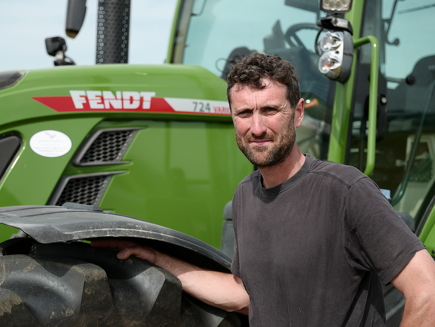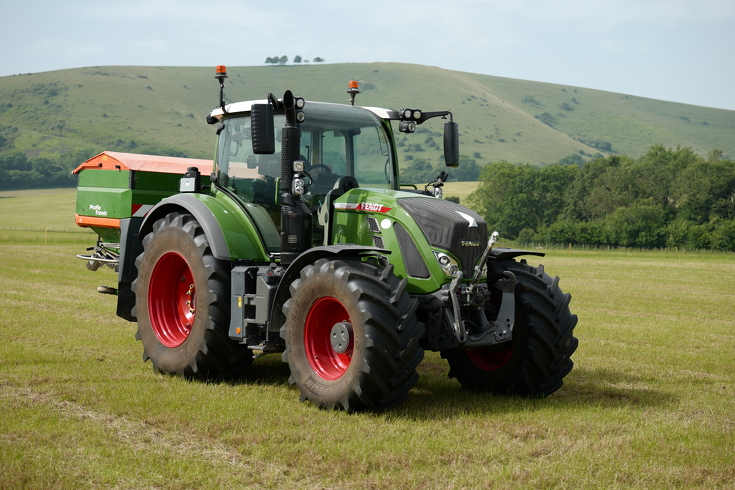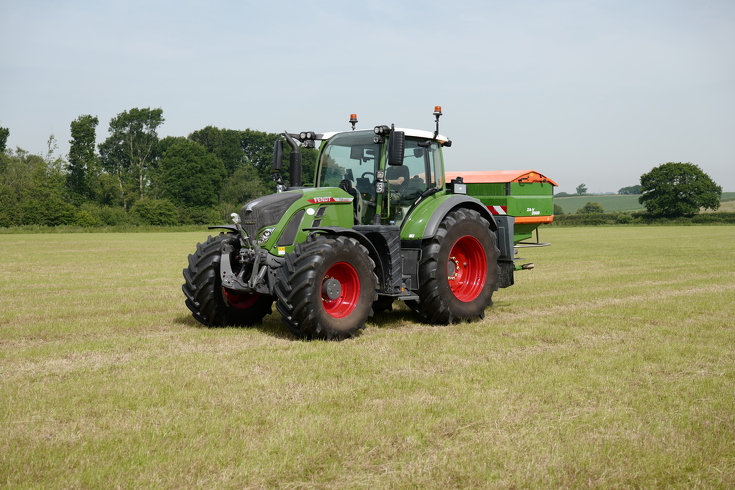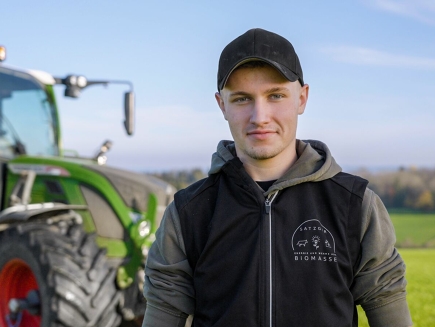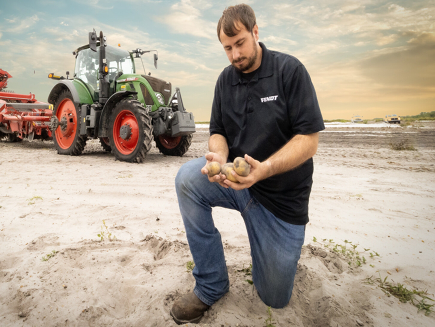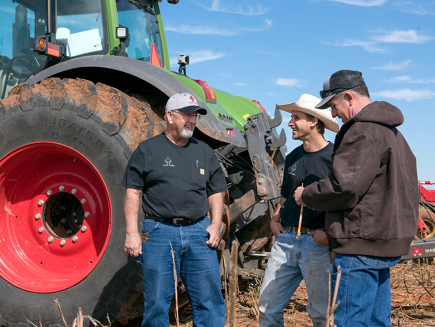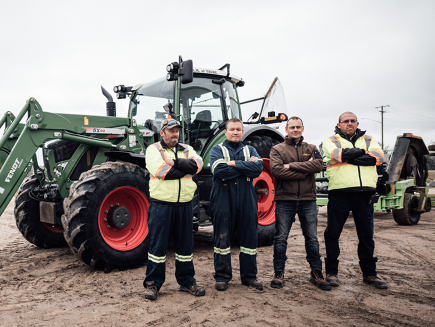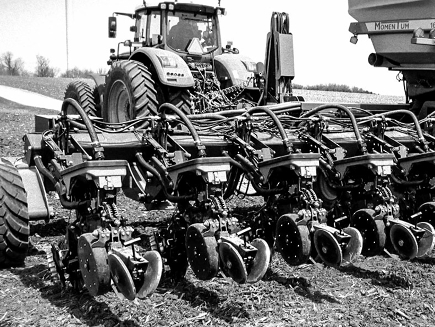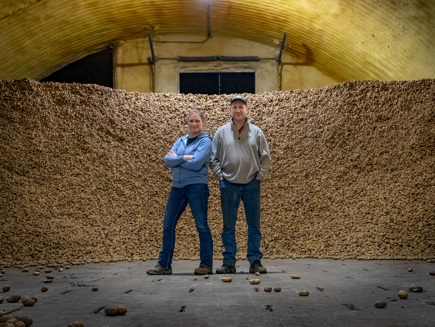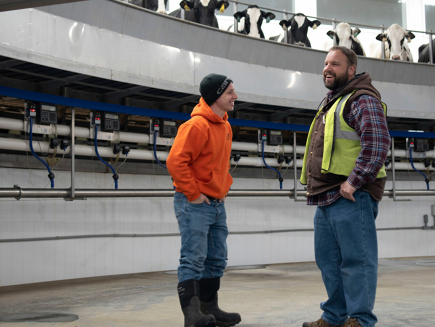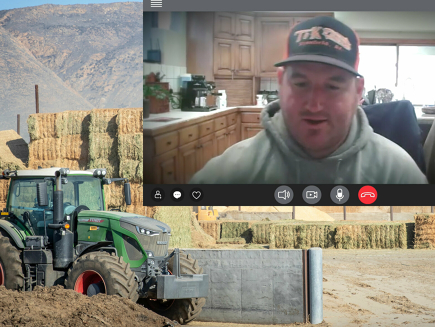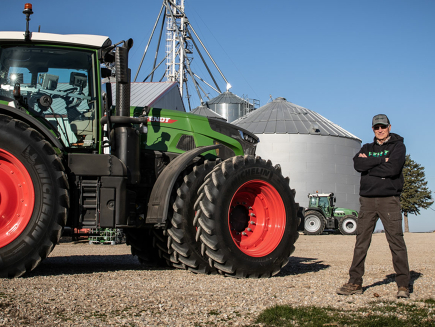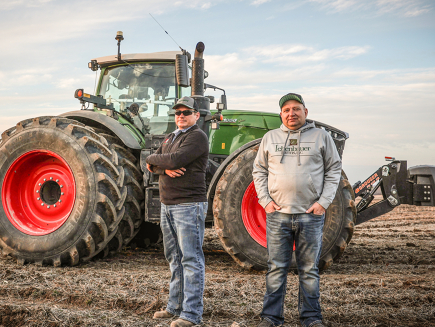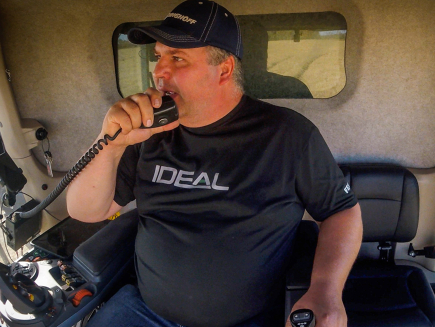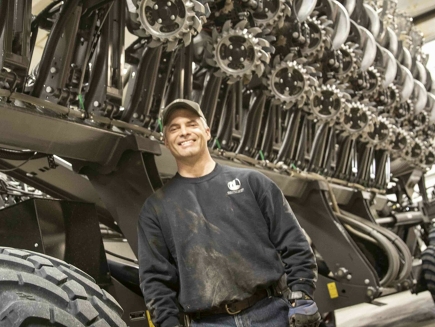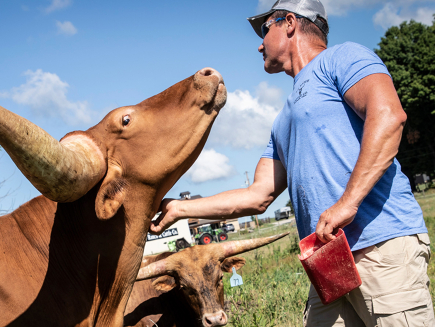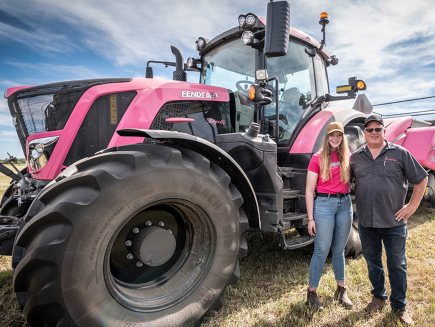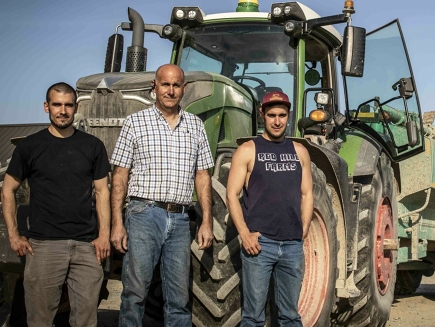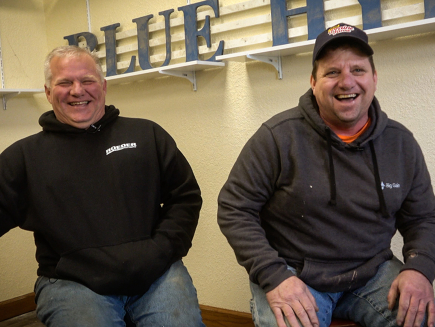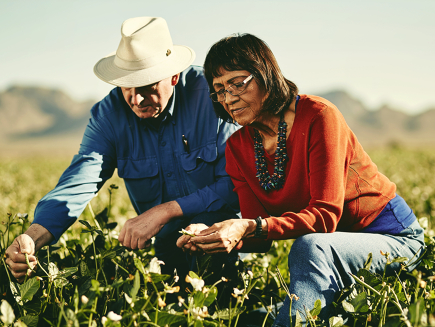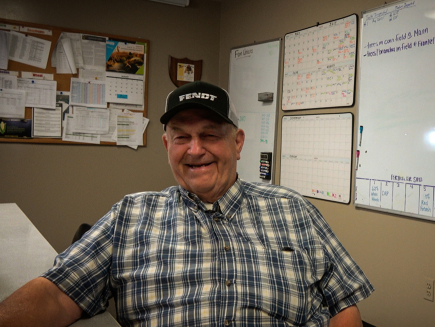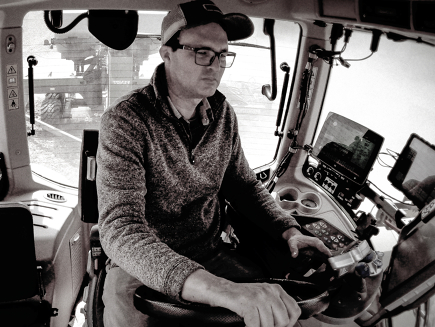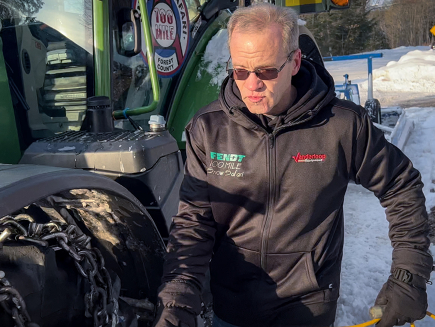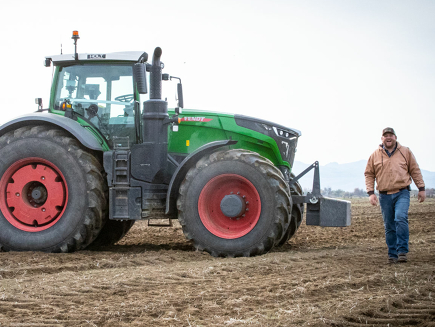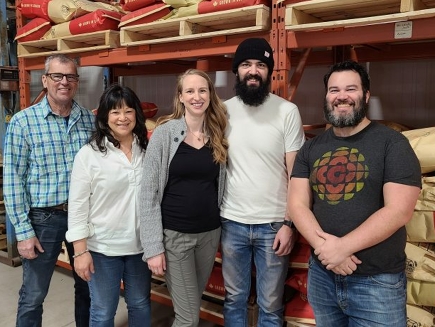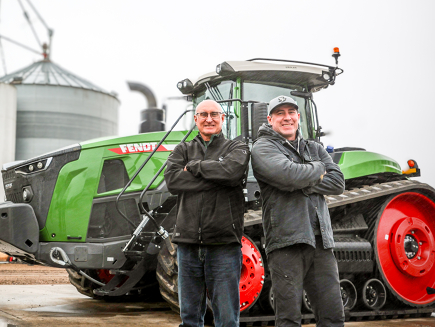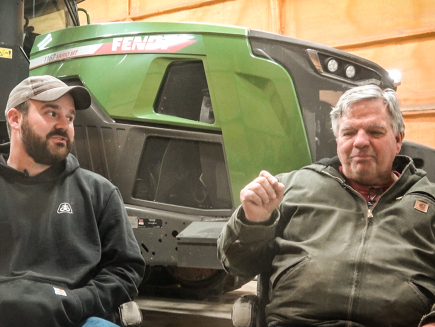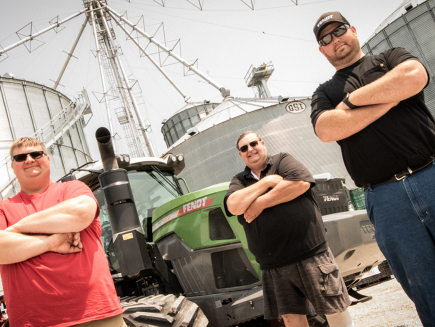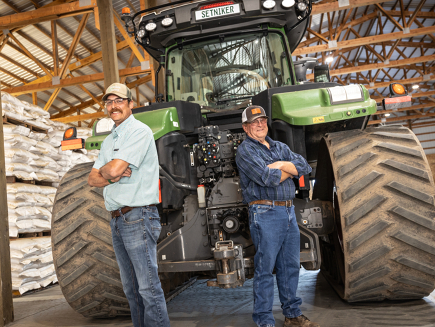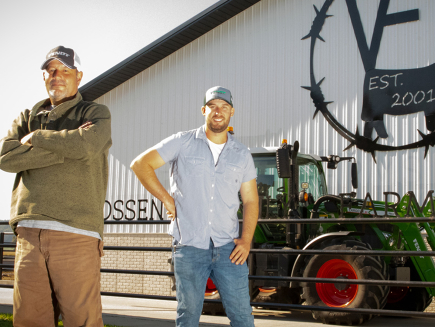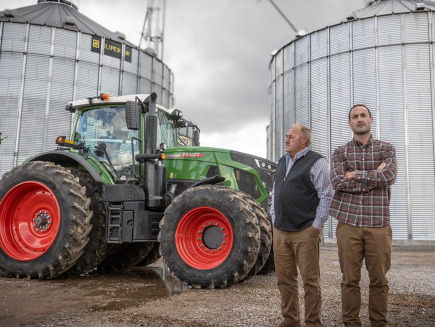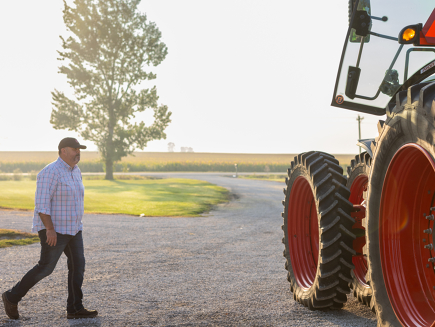“When I borrowed the Fendt 700 Vario-series demonstrator from the local Crawfords Billingshurst depot I didn’t expect to buy it, but within 30 minutes of it arriving on the farm I just didn’t want to give it back,” explained Sussex-based farm manager, David Ellin.
David has managed the 700ha Perching Manor Farm at Fulking in the South Downs National Park for 13 years. The operation includes 240ha of arable cropping plus grass grazing for a 100-head single suckler herd of Angus x Limousin cattle and up to 600 sheep. A large area is enrolled in HLS environmental schemes, and David said that there is a strong emphasis on nature and nature recovery.
The farm is on top of the Brighton Aquifer, and the farm works with Southern Water monitoring the effect of agricultural activities on the water system. Techniques under evaluation include variable rate Nitrogen applications. Cropping is mainly winter wheat, oilseed rape, spring beans and spring barley. Stewardship areas include low input spring cereals, over-wintered stubbles, and fodder crops. Soils on the farm range from shallow chalk over flint on the high ground to black gault clay and greensand down on the Weald. “Our range of soil types means we can’t rely on just one system for everything,” David explained. “The higher land is colder too. We are just four miles from the sea, and it’s almost always windy, so we see a big difference in crop development across the farm.”
In the past, intensive cereal production relied on high inputs, and deep cultivations by a fleet of heavy, high-horsepower tractors. When David started at the farm, he replaced the deep ploughing establishment regime with a minimum tillage system, then six years ago he bought a direct drill with the objective of improving soils, reducing operating costs and reducing the labour requirement. Now David does most of the arable work with the help of one full-time employee whose primary role is looking after the livestock.

